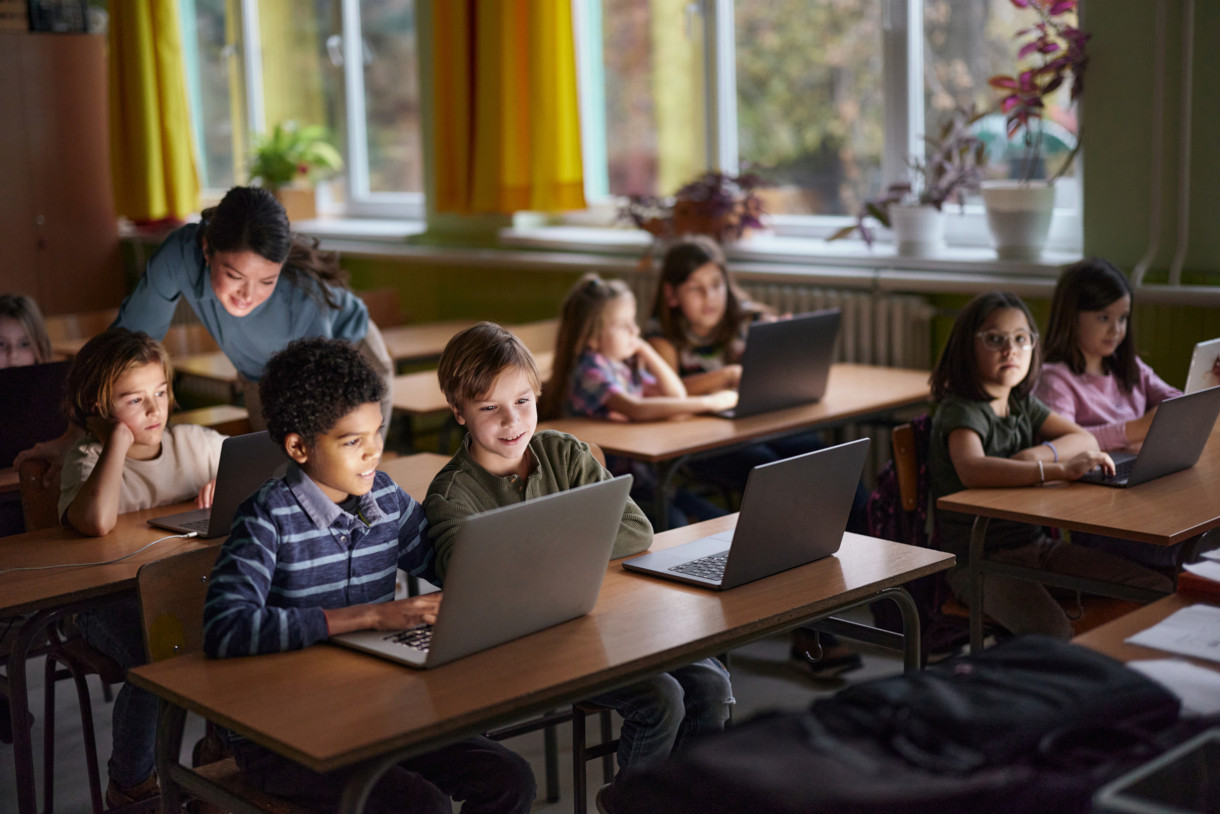Handheld pilot program shows early success
With 99 schools and over 90,00 students, Fulton County Schools is the fourth largest in Georgia. Its leadership believes in excellence and academic achievement. Many of its leaders also believe that the current student generation benefits from the integration of cutting- edge technology into the classroom – and beyond.
A project using handheld computing is demonstrating the validity of that idea. Fulton County Schools is piloting handheld computing in two high schools - North Springs and Roswell - which are using 60 iPod touch handheld computing devices equipped with Studywiz Spark and Eduphoria Appraise software.
"Handheld devices reach children where they are and engage their playful nature while in the classroom," said Kathy Politis, Director of Instructional Technology at Fulton County Schools. "Whether 6 or 16, students engage in games and sports, and we often lose that playful nature in the classroom. When we adapt and use devices like iPod touches, we capture their attention and support our curriculum at the same time."
Both schools have an onsite Apple server installed. Students can take tests, access student galleries, download class work, organize class notes, click links to videos, take polls, join class discussion groups, and keep their calendars. Teachers can extend their teaching practices to bring in video and outside sources to support the curriculum. The two schools' administrators and department chairs also use the handhelds for walkthrough appraisals with Eduphoria Appaise software. The pilot began in the spring of 2009, and now is in its first full year.
What has been the student reaction? "It's like a book, but a lot more organized," said sophomore Rachel Engle of Roswell High School, who uses her iPod touch every day in her AP World History class. “It's organized by school day, with all lecture notes, handouts, study sheets, and links to videos or reference materials all in one neat place. It's cool; we can put music and games on it too."
Students carry their educational materials with them, accessing learning content on the school bus, after sports practice, or after orchestra rehearsal.
"It's like having my own personal laptop that's easy to carry around," says sophomore Paul Jennings. "You can do a whole lot but it takes some adjusting to, taking notes on the small keys. I love the online textbook - it's easy to find info, and I can easily look through my notes. It's available when I want it, plus I have quick access to the video clips."
Tools and ideas to transform education. Sign up below.
Mark Schuler, Roswell High School AP World History teacher, says the school has 30 in inventory, which the students can use for the school year. At the end of the year the units are erased for next year's students. An option that has been surprisingly popular is allowing students to bring in their own iPod touches. Since almost half the class has supplied their own, the program could be shared with more classes.
When asked about students having access to their iPods during class time, Schuler said, "At first it's easy to feel they're doing something they're not supposed to: are they on Facebook? are they texting? I have had to reevaluate how I'm teaching. I'm shifting the responsibility of learning to them; I tell them 'If you waste time in class, it will show up in your grade.' “
While Roswell High's pilot dedicates the iPod touches to one subject, at North Springs, teachers use Studywiz to distribute content to students in different classes, and students return the iPod touch units to the cart after class.
What's next for the pilot? "We're seeing improved student engagement, and will be looking at AP scores," says Politis. Now we have our 3rd school, Creekside High School, getting involved. I'm thinking a lot of our mid-year Checkpoints testing can be done online with the iPods. Politis also noted that many other Fulton Schools are interested in joining the program, and have new ideas on using the handhelds to improve teaching and learning.
“We believe the students will study more if they find it enjoyable,” added Schuler. “We're designing - not re-inventing - the wheel for this generation of learners. It's the way these kids are wired."
